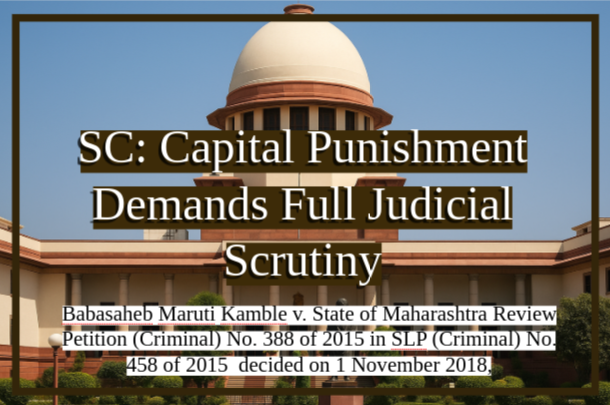SCOI Restores Section 138 NI Act Proceedings Against ‘Sick’ Company
- M.R Mishra

- Sep 6, 2025
- 2 min read
Case: Shree Nagani Silk Mills Pvt. Ltd. v. L.D. Industries Ltd. & Ors. (2025 INSC 1064):
The Supreme Court in this case has clarified the interplay between cheque dishonour prosecutions under Section 138 of the Negotiable Instruments Act, 1881 and protective measures granted to industrial undertakings declared ‘sick’ under the Sick Industrial Companies (Special Provisions) Act, 1985 (SICA).
What's The Matter?
The case arose out of a series of complaints by Shree Nagani Silk Mills against L.D. Industries for dishonoured cheques worth several crores.
While the Magistrate had summoned the accused company and its directors, the revisional court set aside the summons, relying on the argument that the company was declared ‘sick’ by the BIFR and was under a restraint order prohibiting disposal of assets.
The Bombay High Court upheld this view, relying heavily on Kusum Ingots & Alloys Ltd. v. Pennar Peterson Securities Ltd. (2000) 2 SCC 745.
What Court Said?
On appeal, the Supreme Court reversed. Justice Manoj Misra, speaking for the Bench, underscored that Section 22 of SICA does not bar criminal proceedings under Section 138 NI Act. The embargo under Section 22A, which prevents disposal of assets without BIFR’s consent, must be read contextually: if cheques are issued for day-to-day operations, prosecution cannot be thwarted merely because of a restraint order.
The Court also reiterated the presumption under Section 118(b) NI Act that a negotiable instrument is presumed to be drawn on the date it bears holding that whether cheques were issued in violation of BIFR directions is a matter for trial, not for quashing at the threshold.
The judgment also affirmed the settled principle that trial courts have no inherent power to recall summoning orders.
The revisional court’s attempt to discharge the accused at the pre-trial stage was thus impermissible.
Importantly, the Court drew from Southern Steel Ltd. v. Jindal Vijayanagar Steel Ltd. (2008) 5 SCC 762, where it held that a company’s ‘sick’ status under SICA cannot be used as a shield to escape liability for cheques knowingly issued against legally enforceable debts.
Allowing such a defence at the summoning stage would incentivize abuse of the SICA process and erode faith in commercial transactions.
By restoring the proceedings and directing the Magistrate to continue trial, the Court has reaffirmed two vital principles: that the protection of SICA is not a carte blanche to dishonour debts, and that cheque dishonour cases under Section 138 deserve expeditious adjudication without premature discharge.
This decision strikes a balance between the legislative intent of reviving distressed companies and the need to uphold the sanctity of negotiable instruments in India’s commercial ecosystem.







Comments